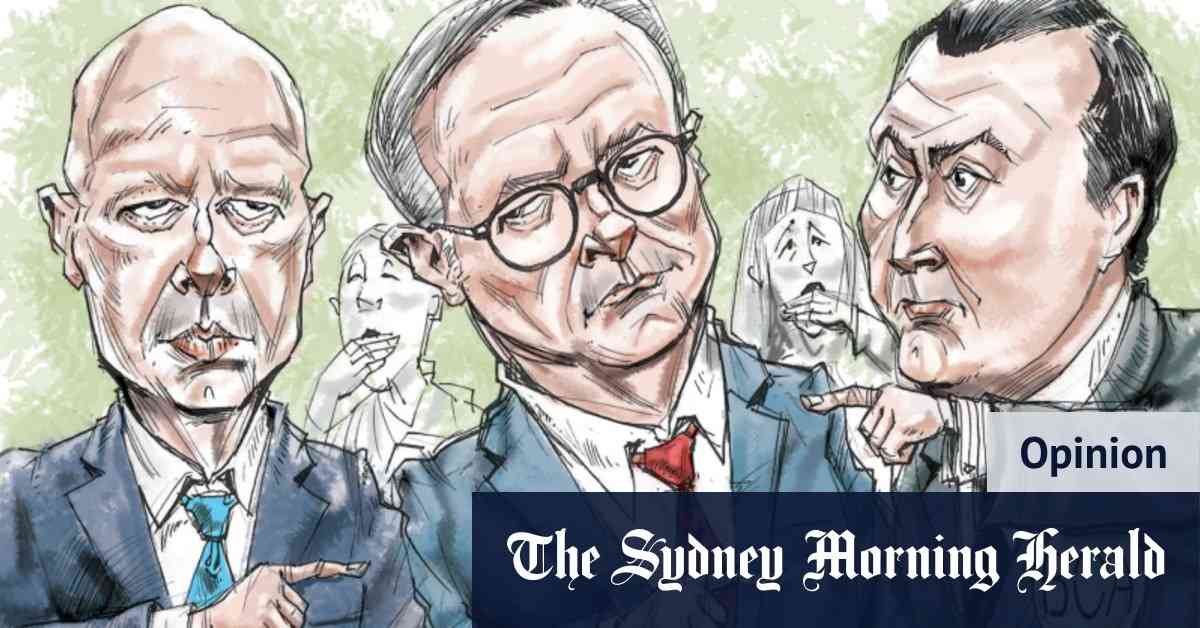PM Morrison’s Delay in Debating Albo: Strategic Move or Act of Cowardice?
In the ever-evolving world of politics, every move made by a leader is scrutinized and analyzed for its underlying motives. Prime Minister Morrison’s delay in debating Albo has sparked controversy and speculation among political analysts and the public alike. Is this delay a strategic maneuver to gain an advantage, or is it a sign of cowardice in the face of tough questions and debates?
The Hypothetical Scenario
Imagine a scenario where the Albanese government took the initiative to address housing affordability early on, making bold and sweeping changes to benefit those struggling to buy a home. In this alternate reality, the government would have faced intense backlash and criticism for potentially destabilizing the housing market. However, it would have also demonstrated a clear commitment to addressing a pressing issue for many Australians.
The hypothetical situation highlights the delicate balance that politicians must navigate between taking decisive action and avoiding potential political fallout. In the world of politics, there are no easy wins, only choices between different forms of political pain.
The Low-Stakes Disputes
Recent political disputes, such as the stand-off in the Senate over housing initiatives, may seem significant within the political sphere. However, in the grand scheme of things, these disagreements are relatively minor and fail to capture the attention of the general public. The prime minister’s vague threats of a double dissolution election and the government’s delays may have created some buzz in political circles, but they haven’t resonated with the broader population.
In a time where inflation dominates the public discourse and concerns about financial stability loom large, political controversies over minor policy issues seem insignificant. The current political atmosphere is characterized by a sense of exhaustion and a longing for meaningful change.
The Blame Game
Amidst this environment of restlessness and impatience, various entities in the political landscape are quick to deflect blame onto others. The Minerals Council, the Business Council of Australia, the Liberals, and even the Reserve Bank have all been targeted as scapegoats for various issues. However, the disputes that arise from these blame games often lack substance and fail to address the underlying challenges facing the nation.
The lack of clear ideological divides in contemporary politics has further muddied the waters, with business, Labor, and the Coalition often aligning on key priorities. This blurring of lines reflects a period of uncertainty and ineffectiveness that has plagued the political landscape for the past decade.
The Housing Debate
One of the key policy areas where ideological differences come to the forefront is housing affordability. The debate over negative gearing and capital gains tax highlights the philosophical divide between viewing housing as an investment commodity versus a fundamental human need. While taking action on these issues may have political implications, it could also signal a significant shift in the way housing is perceived and valued in society.
The Albanese government’s reluctance to act on housing affordability is not solely due to inflationary pressures but also reflects a broader tendency towards moderation and caution. In a time of economic uncertainty and public fatigue, the prospect of meaningful change becomes increasingly daunting.
As we navigate the complex and challenging political landscape ahead, it is crucial to recognize the underlying tensions and contradictions that shape our decision-making processes. Only by engaging in genuine dialogue and seeking common ground can we hope to overcome the obstacles that lie ahead.

